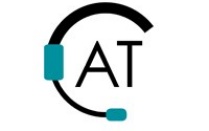Full citation
Booker, M. D., Drake, A. R., & Heitger, D. L. (2007). New Product Development: How Cost Information Precision Affects Designer Focus and Behavior in a Multiple Objective Setting. Behavioral Research in Accounting, 19, 19-41.
Format: Peer-reviewed article
Type: Research — Non-experimental
Experience level of reader: Fundamental
Annotation: This study simulates a portion of the new product development process with the use of engineering and business university students acting as the product designers. It investigates the effects of providing product designers with relative design cost information versus specific design cost information. It also looks at how different levels of cost information impacts development of different types of products; incremental (requiring minor changes to an existing product) or radical (requiring major changes such as a new technology to an existing product). Providing specific cost information (actual dollar amounts for various design component choices) resulted in more cost-effective designs for each product type.
Setting(s) to which the reported activities/findings are relevant: Large business, Small business (less than 500 employees)
Knowledge user(s) to whom the piece of literature may be relevant: Manufacturers, Researchers
Knowledge user level addressed by the literature: Organization
This article uses the Commercial Devices and Services version of the NtK Model
Primary Findings
Tip: When developing a new product that is a variation of an existing product, providing specific quantifiable design costs to the engineers will result in a more cost effective product.
Experimental study. ANOVA results F = 13.82, p < .001
Occurrence of finding within the model: Step 4.12
Secondary Findings
Tip: It takes more time and effort for people to process information that is delivered through words instead of numbers. Consider this when developing implementation tools.
Occurrence of finding within the model: KTA Step 1.A
